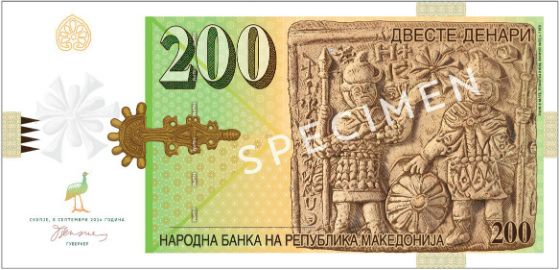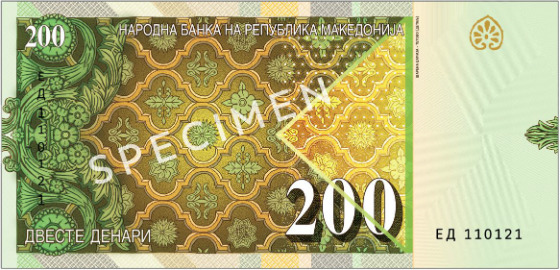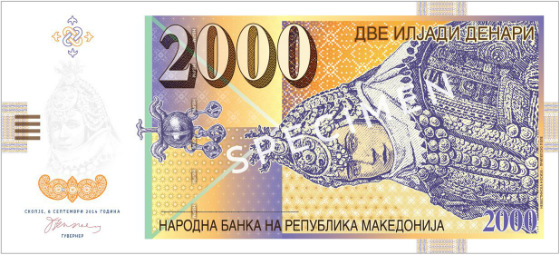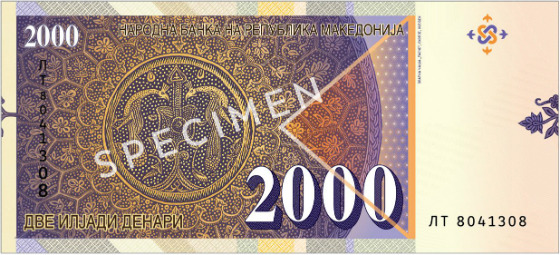By accepting the crown on 1 December 2016, Thailand officially has a new king. Crown Prince Maha Vajiralongkorn will henceforth be known as King Rama X. He succeeds his father King Bhumibol, or Rama IX, who died on 13 October 2016. The new king will be formally crowned next year after the official period of mourning has ended.
This means he will eventually also replace his father on all Thai banknotes. We have seen him there before however, like on this commemorative 100-baht banknote issued on 27 July 2012.
King Rama X as Crown Prince Maha Vajiralongkorn
 This news slipped by me I'm afraid. The Royal Monetary Authority of Bhutan has released a commemorative banknote of 1,000-ngultrum on 21 September 2016 to celebrate the birth of His Royal Highness The Gyalsey, Jigme Namgyel Wangchuck. He was born on 5 February 2016 and is the first child and heir apparent of King Jigme Khesar Namgyel Wangchuck.
This news slipped by me I'm afraid. The Royal Monetary Authority of Bhutan has released a commemorative banknote of 1,000-ngultrum on 21 September 2016 to celebrate the birth of His Royal Highness The Gyalsey, Jigme Namgyel Wangchuck. He was born on 5 February 2016 and is the first child and heir apparent of King Jigme Khesar Namgyel Wangchuck.
From the press release: "The Banknote bears the Commemorative message “Celebrating the Birth of The Gyalsey, February 5, 2016” on the Obverse and the message “Birth of the Prince of Bhutan” on the Reverse side. The note bears the prefix “W” to mark the reign of the Wangchuck Dynasty. The note measures 175mm x 60mm, with the security thread enhanced to 4.0mm wide rolling star window thread with clear text. The note bears the signature of Governor, Dasho Penjore. The colour scheme and all other features of the commemorative banknote are the same as the Series 2008 Nu.1000 notes. The RMA has printed 3,420,000 pieces of the commemorative banknote through Giesecke & Devrient."
 As predicted the Banco de la República in Colombia has announced that a new 10,000-pesos note will be issued from 7 December 2016. This will be the sixth and last banknote of the new series.
As predicted the Banco de la República in Colombia has announced that a new 10,000-pesos note will be issued from 7 December 2016. This will be the sixth and last banknote of the new series.
The new note shows antropoligist Virginia Gutiérrez on the front, with the Amazonian forest on the back.
 Sad news from The Netherlands. Dutch banknote printer Royal Joh. Enschedé has announced it will downsize the company and will stop printing banknotes...
Sad news from The Netherlands. Dutch banknote printer Royal Joh. Enschedé has announced it will downsize the company and will stop printing banknotes... 
Royal Joh. Enschedé has printed dutch banknotes, euro banknotes for several countries, all the dutch stamps and other security prints. The company was founded in 1703 and is one of the oldest dutch companies. On the euro notes of the first series you can identify the notes printed by Joh. Enschedé by looking at the printer code which starts with a G.
The euro notes were also the beginning of the end by the way because the company lost the monopoly it had in the Netherlands for printing banknotes and the Dutch Central Bank negotiated a price drop. The company was in financial trouble a few years back and was saved but it seems the troubles are not yet over...
All the beautiful notes Joh. Enschedé has printed over the years were compiled in one fantasy note titled "Mother of all Dutch Money" given to the employees in 2003 in commemoration of the 300th anniversary of the company.
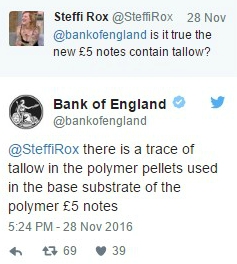
 Well, there was a controversy I didn't expect! After a tweet was sent to the Bank of England asking if the new plastic pound notes contain tallow, the answer was a rather surprising 'yes'. Tallow is a rendered form of beef fat so of course vegans, vegetarians, hindus, sikhs and lots of other people were outraged that they were forced to use a product partly made from an animal. More than 118,000 people have already signed a petition at this moment, urging the Bank of England to remove tallow from the banknotes.
Well, there was a controversy I didn't expect! After a tweet was sent to the Bank of England asking if the new plastic pound notes contain tallow, the answer was a rather surprising 'yes'. Tallow is a rendered form of beef fat so of course vegans, vegetarians, hindus, sikhs and lots of other people were outraged that they were forced to use a product partly made from an animal. More than 118,000 people have already signed a petition at this moment, urging the Bank of England to remove tallow from the banknotes.
The Bank of England has responded to the controversy by promising to look into ways to make its banknotes more animal-friendly. At the time of signing the contract with polymer supplier Innovia the Bank of England wasn't aware that the product contained traces of animal fat.
Meanwhile, the Scottish banks have announced that their plastic notes also contain traces of animal fat. "The Clydesdale Bank, Bank of Scotland and Royal Bank of Scotland, had previously all said their notes were free of animal products. (...) However, De La Rue, which makes the notes, said more detailed analysis had revealed animal derivative equivalent to a maximum of 0.003% per banknote."
I'm sure other countries that use polymer notes are also taking a closer look at their banknotes right now.
 The Reserve Bank of Zimbabwe has formally announced that the already infamous Zimbabwian Bond Notes will be issued from 28 November 2016. The new notes are pegged 1:1 to the US dollar and will be issued in denominations of 2- and 5-dollar.
The Reserve Bank of Zimbabwe has formally announced that the already infamous Zimbabwian Bond Notes will be issued from 28 November 2016. The new notes are pegged 1:1 to the US dollar and will be issued in denominations of 2- and 5-dollar.
Rumours surrounding the introduction of the bond notes have led to some of the biggest protests in the already turbulent country. Many people don't want the new notes dreading a return to the days of hyperinflation of the past.
People mourn or people celebrate the fact that Fidel Alejandro Castro Ruz a.k.a. Fidel Castro has died. He appeared on several banknotes but I like this 10-peso note (P104) best. It shows one of his characteristics: long, very long speeches.
Fidel Castro
(13 August 1926 - 25 November 2016)
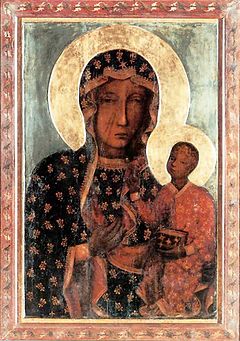
 The Narodowi Bank Polski (National Bank of Poland) has announced its plans for special coins and banknotes in 2017. In the long list (unfortunately only in Polish at this moment, but in Google Translate for you to enjoy) we can see one "banknot kolekcjonersk".
The Narodowi Bank Polski (National Bank of Poland) has announced its plans for special coins and banknotes in 2017. In the long list (unfortunately only in Polish at this moment, but in Google Translate for you to enjoy) we can see one "banknot kolekcjonersk".
In September of 2017 the bank will issue a commemorative banknote commemorating the 300th coronation anniversary of the image of Our Lady of Czestochowa. The icon was formally crowned in 1717 but the original icon is said to have been painted by the apostle St. Luke using a table top from the house of the Virgin Mary, the mother of Jesus. The icon is considered to be the Queen of Poland and many legends about sightings of Mary are associated with it.
Alle we know for sure, is that next year 40,000 pieces of this new banknote of 20-zlotych will be issued in September.
Courtesy of Zbyszek for the tip.
 The Bank of Canada has announced which 5 women are eligible to be the new face of the next new Canadian banknote. A long list was publicized in May 2016 and this has been narrowed down to a short list of 5 women.
The Bank of Canada has announced which 5 women are eligible to be the new face of the next new Canadian banknote. A long list was publicized in May 2016 and this has been narrowed down to a short list of 5 women.
The 5 ladies are:
- Viola Desmond (1914–1965), a black businesswoman from Nova Scotia who famously challenged racial segregation at a film theatre in her home province.
- E. Pauline Johnson (1861–1913), a poet and writer whose performances reflect both English and Mohawk traditions and who is recognized as helping to shape Canadian literature.
- Elizabeth (Elsie) MacGill (1905–1980), the world's first female aircraft designer. She worked as an aeronautical engineer during the Second World War.
- Fanny (Bobbie) Rosenfeld (1904–1969), an Olympian who won gold in the relay race and silver in the 100 metre dash at the 1928 summer Olympics.
- Idola Saint-Jean (1880–1945), a Quebec journalist, educator and feminist who fought for the women's vote in Quebec.
"In compiling their short list, Advisory Council members agreed that these five women best articulated the Council’s ultimate selection criteria: that nominees should have broken or overcome barriers, made a significant change, left a lasting legacy, and be inspirational.
(...) On Thursday, 8 December 2016, the Minister of Finance and the Governor of the Bank of Canada will reveal which iconic Canadian woman will be featured on the next regularly circulating bank note, expected in 2018."
 The Banco Central de Nicaragua has announced that from 1 December 2016 a new 1,000-cordobas denomination will be introduced, making it the highest denomination in the country. The reason for this move is the inflation and the need for higher denominations.
The Banco Central de Nicaragua has announced that from 1 December 2016 a new 1,000-cordobas denomination will be introduced, making it the highest denomination in the country. The reason for this move is the inflation and the need for higher denominations.
Two different versions of the 1,000-cordobas note will be issued. The banknote which will be issued on 1 December is a commemorative edition celebrating the centenary of the death of poet Rubén Darío. The front shows the poet, a daisy flower and a poem. The back shows a dove of peace and a fragment of the same poem.
The regular edition of the new 1,000-cordobas will be issued from 2 January 2017 and will have the independence of the country as its main motive. The front shows Hacienda San Jacinto and the back shows the San Juan river.
 One of the most eagerly awaited new series is one step closer to being issued to the public. The Norges Bank has announced the final design and issuing dates of the new Norwegian banknote series.
One of the most eagerly awaited new series is one step closer to being issued to the public. The Norges Bank has announced the final design and issuing dates of the new Norwegian banknote series.
The theme of the new series is the Sea. When the winning concept was announced it created quite a stir among collectors and in the world of banknotes. The design showed a traditional image on the front which had a connection with the sea (a boat, a lighthouse, a wave, etc.). But it was the back of the notes that proved to be the pièce de résistance.
The back of the notes shows a pixelated image connected with the image on the front which gives it an ultra-modern and very original design. Mixed reactions were heard everywhere and I am myself still on the fence if I like it or not. But it sure created a discussion and interest which is always good in my opinion.
Some information on the new notes:
- 50-krone, green, 70x126 mm, front: Utvær Lighthouse in Solund, back: lighthouse beacon, will be issued in Q3-2018
- 100-krone, orange-red, 70x133 mm, front: Gokstad ship, back: cargo ship, will be issued 30 May 2017
- 200-krone, blue, 70x140 mm, front: cod, back: fishing boat, will be issued 30 May 2017
- 500-krone, yellow-brown, 70x147 mm, front: rescue vessel RS 14 "Stavanger", back: oil platform, will be issued Q3-2018
- 1,000-krone, purple, 70x154 mm, front: wave at open sea, back: open sea and horizon, will be issued Q4-2019
It seems that the signal flags from earlier designs have been removed from the final design. The signal flags spelled out N-O-R-G-E together which I thought was a nice detail. The site of the Norges Bank has some nice films if you're interested in the whole design process.
 As expected the Banco de la República in Colombia has announced that a new banknote of 2,000-pesos will be issued on 29 November 2016.
As expected the Banco de la República in Colombia has announced that a new banknote of 2,000-pesos will be issued on 29 November 2016.
The new note has painter Débora Arango as the main figure on the front, with the Caño Cristales river on the back.
This note will be the fifth issue of the new series, which means only the 10,000-pesos banknote is left to unveil.
 The National Bank of Kazakhstan has announced that on 1 December 2016, the Day of the First President, a special commemorative banknote of 10,000-tenge will be issued in commemoration of ... the first president and the 25th anniversary of Kazakhstan's independence!
The National Bank of Kazakhstan has announced that on 1 December 2016, the Day of the First President, a special commemorative banknote of 10,000-tenge will be issued in commemoration of ... the first president and the 25th anniversary of Kazakhstan's independence!
On the front we can see the image of president Nursultan Nazarbayev, who has been president of Kazakhstan since 16 December 1991. The back shows the Kazakh Eli monument which has been present on most recent banknotes from Kazakhstan.
Thanks to Triaff Nikitin for the tip and images.
 Rather surprisingly the Reserve Bank of India has demonetized the current 500- and 1,000-rupees banknotes on 9 November 2016 in an effort to attack the black market and counterfeiting in India. People can exchange (real) banknotes at banks in India with a valid ID.
Rather surprisingly the Reserve Bank of India has demonetized the current 500- and 1,000-rupees banknotes on 9 November 2016 in an effort to attack the black market and counterfeiting in India. People can exchange (real) banknotes at banks in India with a valid ID.
Following that sudden decision the RBI also introduces the first two banknotes from the new "Mahatma Ghandi (New)" series, with Ghandi looking the other way. Below are images of the new notes with the 500-rupees note being stone grey with the Red Fort in Delhi on the back. The 2,000-rupees note is magenta and has the Mangalyaan (Mars Orbiter Mission) on the back, which incidentally makes it a very nice addition to my space blog.
 I first wrote about the new 200- and 2,000-denar banknotes in 2014 but the National Bank of the Republic of Macedonia is now finally ready to issue these banknotes to the public. The new banknotes will be issued on 15 December 2016.
I first wrote about the new 200- and 2,000-denar banknotes in 2014 but the National Bank of the Republic of Macedonia is now finally ready to issue these banknotes to the public. The new banknotes will be issued on 15 December 2016.
From the original press release:
"Leitmotif of the obverse of the conceptual, and art and graphic design of the 200 denar banknote is the relief with a presentation of the 41st Psalm of David from the Old Testament, which belongs to the infamous terracotta icons from Vinica, one of the most important early medieval archaeological discoveries on the territory of the Republic of Macedonia. On the same side, in the left center field, there is a presentation of an early medieval bow bronze fibula from the beginning of the VII century, found near Prilep. The reverse of the banknote contains a presentation of an architectural and art element of the frontal facade of the "Colorful (Aladzha) Mosque" in Tetovo, one of the most attractive monuments of architecture and art from the Ottoman period in the Republic of Macedonia, complemented by floral elements taken from the decoration of the marble floor tiles of the famous "Isaac Mosque" in Bitola, built at the beginning of the XVI century.
Leitmotif of the obverse of the conceptual, and art and graphic design of the 2000 denar banknote is the presentation of Macedonian bridal costume from Prilep Field, as an impressive reflection of the richness of the folklore heritage of the Republic of Macedonia. On the same side, in the left center field, there is a presentation of a pendant in the form of a poppy head, which was discovered in Suva Reka, Gevgelia. It is an artifact dated to the VII century BC and belongs to the well-known group of Paionian-Macedonian bronzes. The reverse of the banknote contains a presentation of the decoration of the inside of a gilded vessel, which originates from the XVI century and whose central field shows two affronted peacocks near the "source of life" surrounded by lavish floral decoration."
« Vorige Pagina |
Toon berichten 376-390 van 937 |
Volgende Pagina »
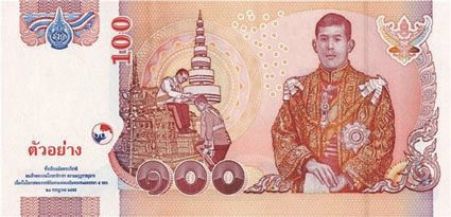
 This news slipped by me I'm afraid. The
This news slipped by me I'm afraid. The 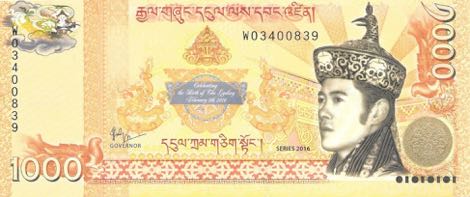
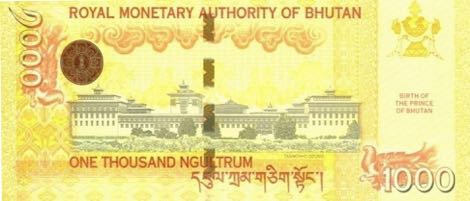
 As predicted the
As predicted the 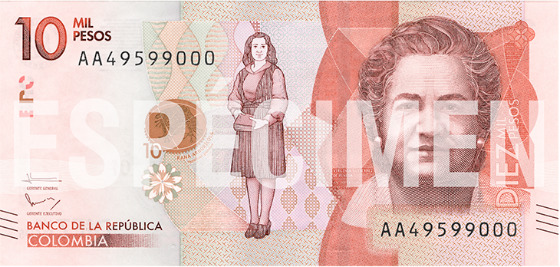
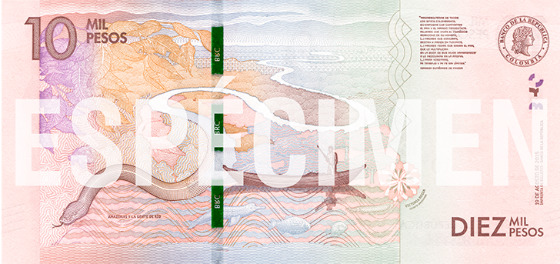
 Sad news from The Netherlands. Dutch banknote printer
Sad news from The Netherlands. Dutch banknote printer 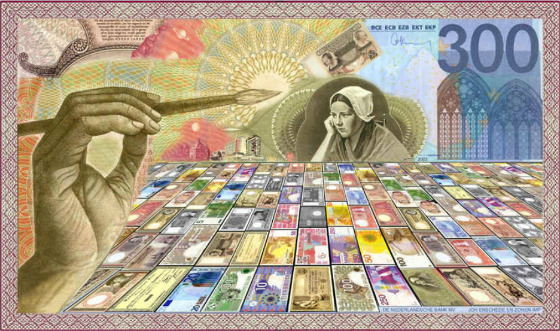

 Well, there was a controversy I didn't expect! After a tweet was sent to the
Well, there was a controversy I didn't expect! After a tweet was sent to the  The
The 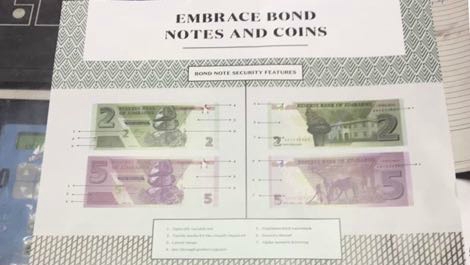
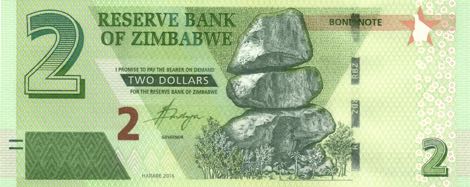
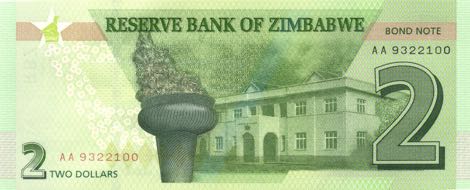
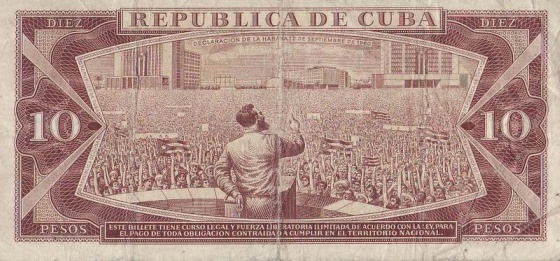

 The
The  The
The  The
The 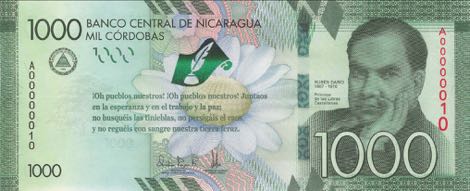
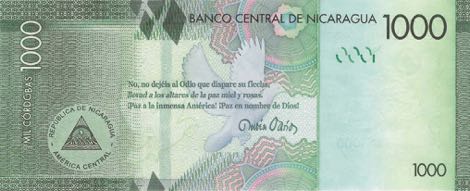
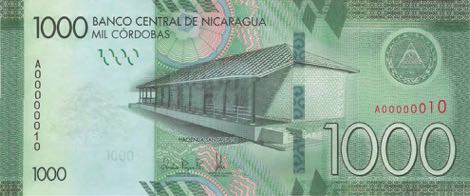
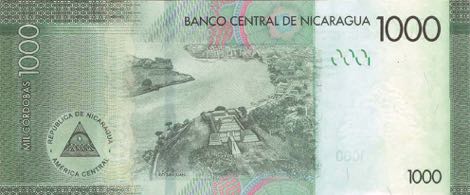
 One of the most eagerly awaited new series is one step closer to being issued to the public. The Norges Bank has
One of the most eagerly awaited new series is one step closer to being issued to the public. The Norges Bank has 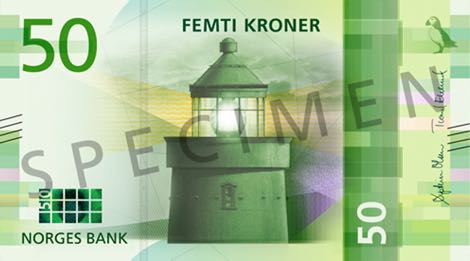
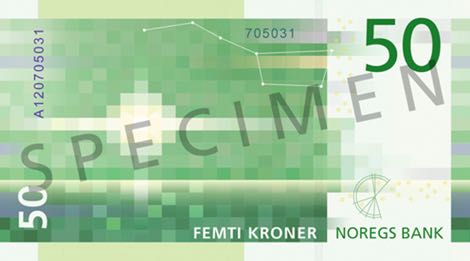
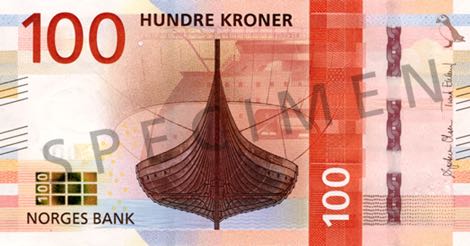
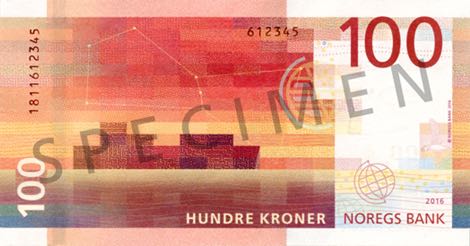
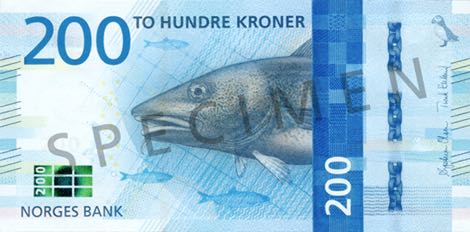
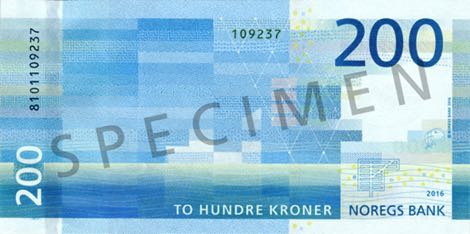
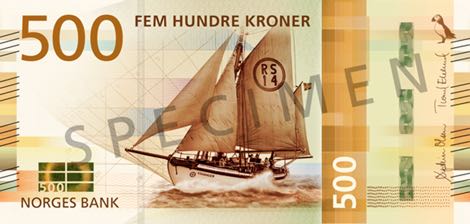
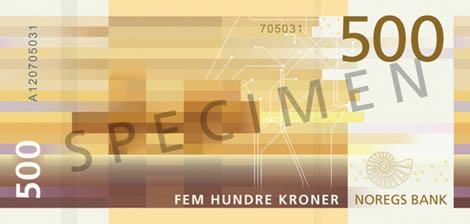
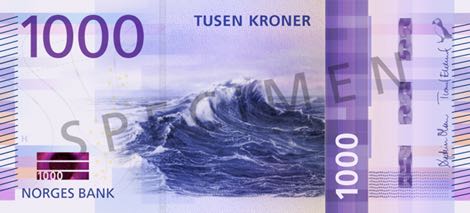
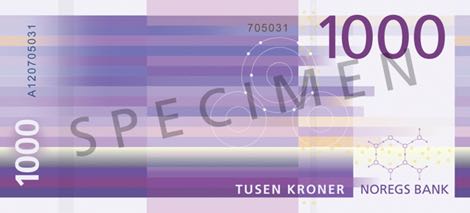
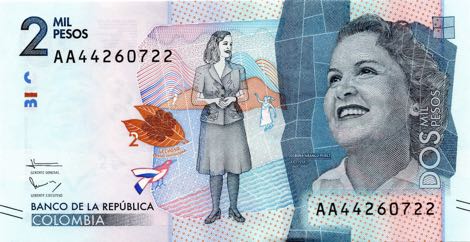
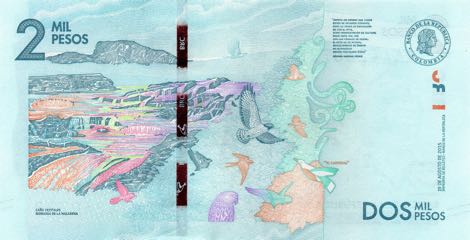
 The
The 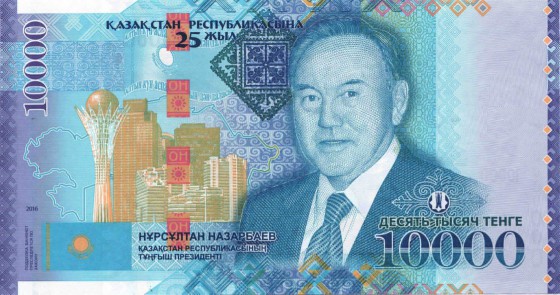
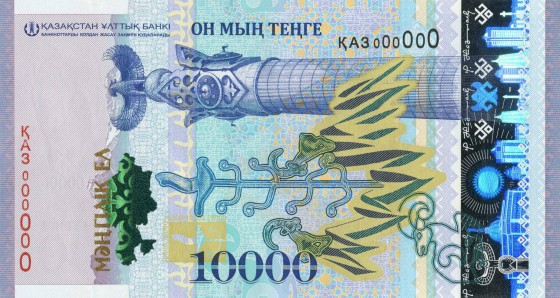
 Rather surprisingly the
Rather surprisingly the 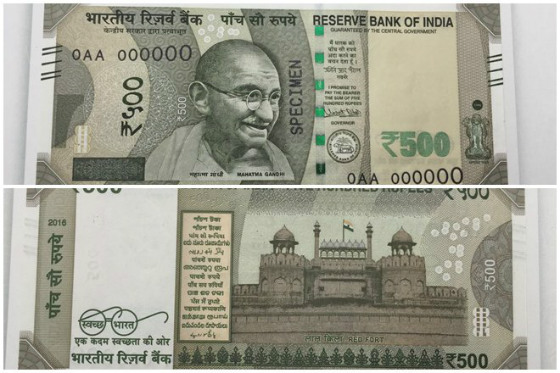
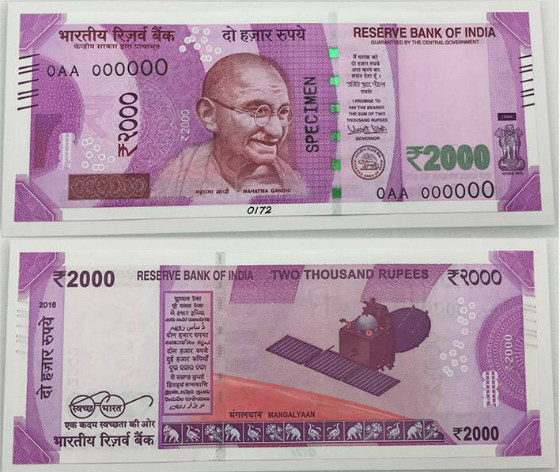
 I first wrote about the new 200- and 2,000-denar banknotes
I first wrote about the new 200- and 2,000-denar banknotes 